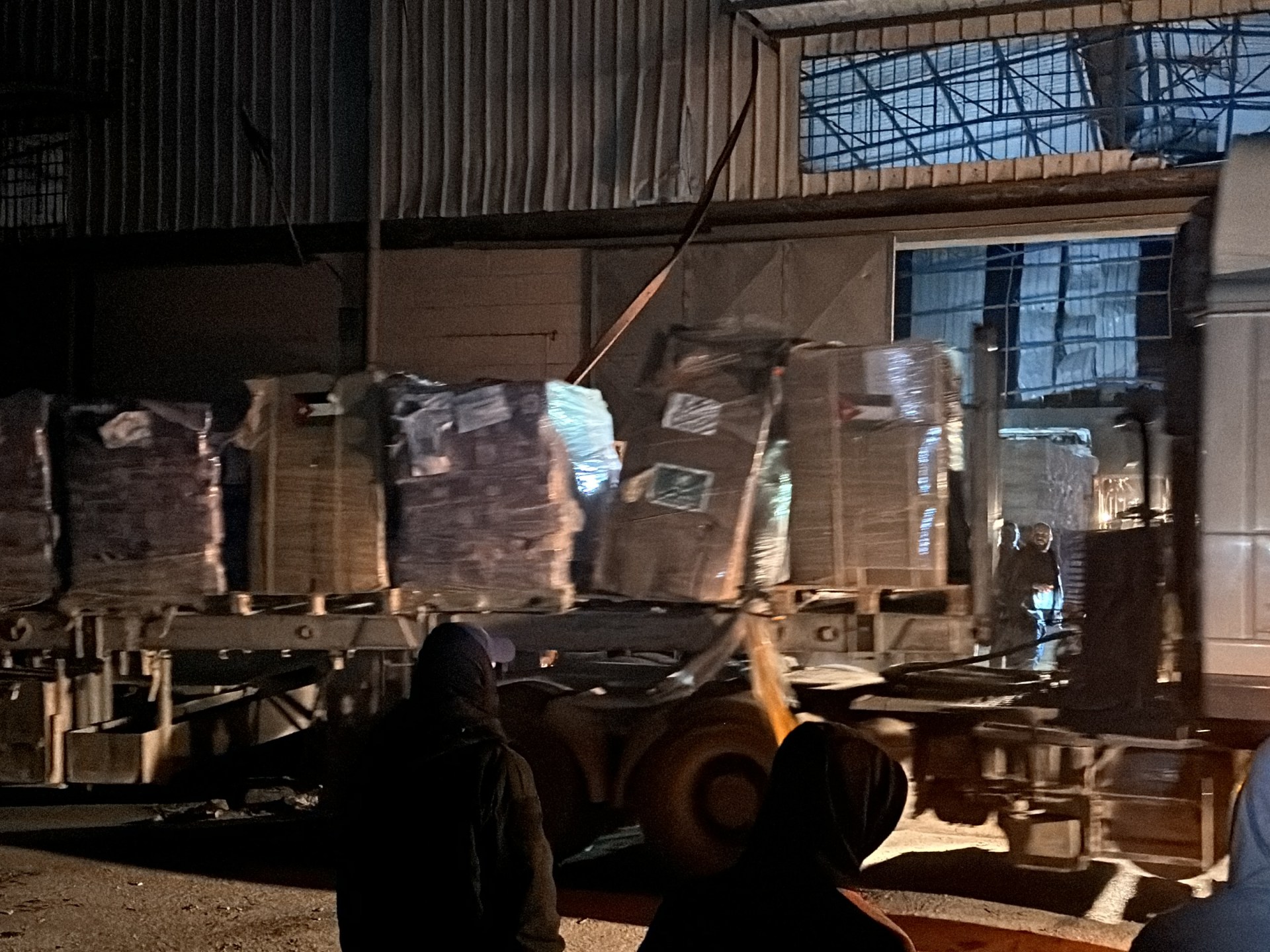play videoplay video
Video duration 03 minutes 53 seconds 03:53
The second batch of humanitarian aid arrived in northern Gaza yesterday, Sunday, while the United Nations Relief and Works Agency for Refugees (UNRWA) warned that people in the Strip are on the brink of famine, and Oxfam accused Israel of violating international humanitarian law by preventing aid from entering the Strip.
The second batch arrived in the city of Jabalia, north of Gaza, via Salah al-Din Street, which connects the south and north of the Strip. This came after the Israeli army allowed, for the second day in a row, a limited number of aid trucks to reach the area.
The second convoy included 9 trucks carrying flour, rice, canned food, and sugar. Al Jazeera's correspondent said that the aid was placed in UNRWA warehouses in preparation for distribution to families.
The entry of aid over the past two days is the first of its kind to reach the northern Gaza Strip governorate since the end of last November.
The stifling Israeli siege on northern Gaza caused widespread hunger and the death of about 27 Palestinians due to malnutrition and dehydration.
A matter of life and death
Despite the limited access to aid, criticism of Israel continued, and UNRWA warned that people in Gaza were on the brink of famine, and stressed the need for the largest possible number of them to have access to the necessary aid.
The agency stressed that safe, sustainable and unhindered access to all parts of the Gaza Strip is a matter of life and death, and added that delivering aid by land is the most efficient and safe way.
For its part, the non-governmental organization Oxfam accused Israel of "deliberately" preventing the entry of humanitarian aid into Gaza, including food and medical equipment, in violation of international humanitarian law.
Oxfam said in a report on Monday: “Despite its responsibility as an occupying power, Israel’s practices and decisions continue to systematically and deliberately obstruct and prevent any meaningful international humanitarian response in the Gaza Strip.”
The NGO denounced "unfairly ineffective" aid inspection protocols that lead to delays of "20 days on average" to allow trucks to enter the Palestinian enclave.
It also condemned "attacks against humanitarian workers and humanitarian convoys."
She criticized the "daily" ban on some equipment classified as "dual-use", which is materials considered usable for military purposes, and explained that water bags or water analysis tools had been rejected in one of her shipments "without reason", before they were later approved.
She explained that some equipment necessary for the work of her employees, such as communication or protection equipment, or electrical generators to operate her offices, is also subject to restrictions.
The NGO also noted “access restrictions” for humanitarian workers, particularly in the northern Gaza Strip.
Oxfam said that “the conditions we witnessed in Gaza are worse than catastrophic,” and explained that 2,874 trucks entered Gaza in February, or “only 20% of the daily aid” that was entering before the Israeli aggression on October 7, This increased the suffering of the Gaza Strip's population of 2.2 million people.
Source: Al Jazeera + agencies

